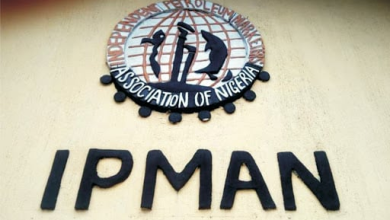IMF Applauds FIRS for Gains in Tax Reforms, Supports Transition to Nigeria Revenue Service
The IMF has praised Nigeria’s FIRS for reforms boosting tax administration and digital compliance.
The endorsement strengthens confidence in Nigeria’s plan to modernize revenue collection and reduce debt.
The International Monetary Fund (IMF) has commended Nigeria’s Federal Inland Revenue Service (FIRS) for what it described as “significant progress” in its efforts to modernize and enhance tax administration, reinforcing international confidence in Nigeria’s ambitious fiscal reform agenda.
Speaking during the launch of an IMF-supported technical mission at the FIRS headquarters in Abuja on Wednesday, Paulo Paz, a Senior Economist at the IMF Fiscal Affairs Department, praised the tax agency’s commitment to revenue generation and institutional strengthening, particularly under the leadership of its Executive Chairman, Zacch Adedeji.
The visit, part of the IMF ongoing technical engagement with Nigeria, focused on assessing FIRS’s preparedness to implement newly signed tax laws and improve tax compliance. According to Paz, the IMF views FIRS’s reforms as a critical component in Nigeria’s strategy to reduce dependence on oil revenues and bolster domestic revenue mobilization.
“Our take on the four tax laws is, first, a recognition of the excellent work that FIRS has been providing to the citizens,” Paz said. “These reforms will increase the relevance of tax administration in Nigeria, putting greater responsibility on FIRS to deliver compliance and enforcement.”
He added that the IMF is committed to helping Nigeria deepen technical assistance, accelerate digital transformation, and streamline tax compliance systems, aligning them with global standards.
“We are honored to be here as a partner to FIRS. Thank you for trusting our advice. We congratulate you on the progress made so far. There is more to come, and we are here to help,” Paz affirmed.
Speaking through his Chief of Staff, Tayo Koleosho, FIRS Chairman Zacch Adedeji welcomed the IMF’s continued partnership, describing it as “foundational” to the agency’s evolving strategy. He highlighted specific areas of collaboration, including Value Added Tax (VAT) automation, data-driven compliance, and digital governance.
“The IMF has gone on this journey with us, and I believe we are in a good place to continue that journey together,” Adedeji said. “We are working on VAT automation and enhancing the compliance program by automating key processes.”
He also emphasized the importance of aligning FIRS corporate plan with its operational goals.
“We must ensure that our strategy dissolves into manageable tasks, particularly in the area of data portfolio management,” he noted.
FIRS to Transition to Nigeria Revenue Service (NRS) by 2026
A significant milestone in FIRS’s long-term reform strategy is its planned transition into the Nigeria Revenue Service (NRS) in 2026. This rebranding effort aims to establish a more transparent, accountable, and autonomous institution, positioning the agency as a model for modern tax administration across Africa.
Under the NRS structure, FIRS is expected to operate with greater agility, improved oversight, and a renewed focus on technology-driven service delivery.
FIRS’s Coordinating Director of Corporate Services, Bolaji Akintola, underscored the IMF importance as a longstanding partner. She noted that FIRS has conducted two comprehensive institutional assessments using the Tax Administration Diagnostic Assessment Tool (TADAT), a global benchmark for evaluating tax system performance.
“The results from the 2023 TADAT assessment showed significant improvement over 2018, demonstrating our commitment to institutional excellence,” Akintola said.
She further explained that several of the agency’s previous weaknesses have been directly addressed in the four new tax reform laws signed by President Bola Tinubu, incorporating recommendations from the IMF and other development partners.
The IMF praise comes at a pivotal time for Nigeria’s economy. With public debt rising and oil revenues fluctuating, there is a growing urgency to widen the tax base and make the revenue system more equitable and efficient. Nigeria’s tax-to-GDP ratio, reportedly one of the lowest in sub-Saharan Africa, has long been a point of concern for both local stakeholders and international observers.
The renewed collaboration between the FIRS and the IMF signals a coordinated effort to enhance tax collection, reduce leakages, and increase transparency in government finances. Experts believe these reforms if fully implemented, could position Nigeria to achieve sustainable revenue growth and reduce its reliance on borrowing.



